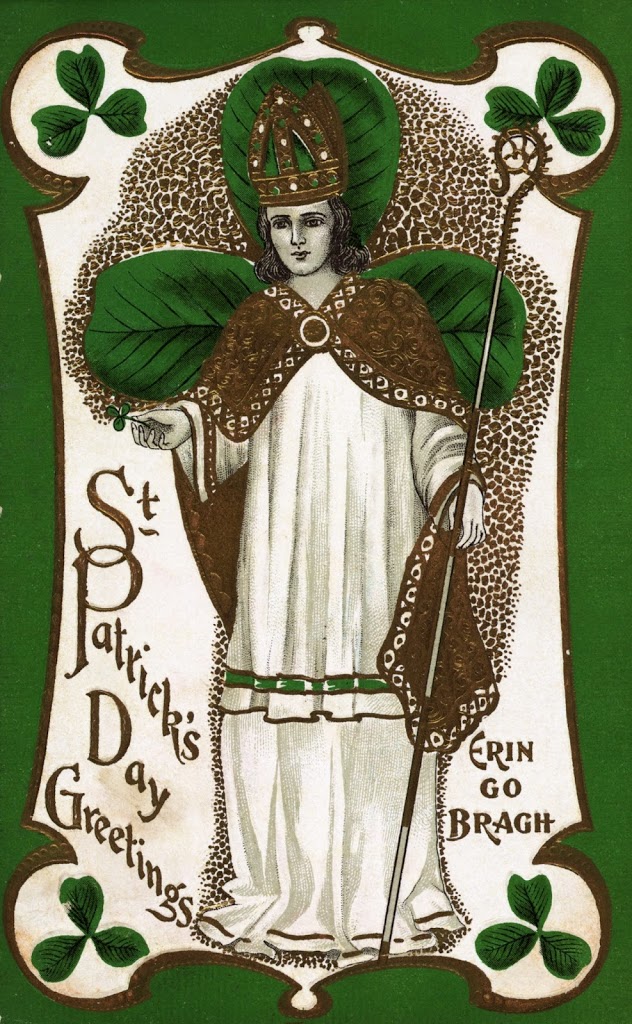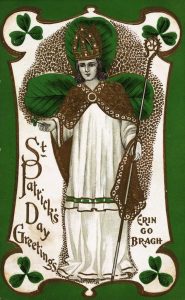Can Catholics Eat Meat on St. Patrick’s Day?
St. Patrick’s Day falls on a Friday this year, which has many Catholics (of Irish descent or otherwise) wondering whether they can celebrate this day with their traditional corned beef and cabbage. You see, Fridays in Lent are days when Catholics are bound by the law of the Church to abstain from meat. Every time St. Patrick’s Day falls on a Friday, stories start to float around of special permission being granted for Catholics to eat corned beef. So is there really an exception to our normal Lenten penance for our favorite Irish saint?
Yes and no.
Here’s the situation. Every Friday during the year is considered a day of penance according to Canon Law (can. 1250). For most of the year, Catholics in the United States are free to choose how they will observe that penance. However, during Lent, the Friday penance must be observed by abstaining from flesh meat (meaning warm blooded animals, so fish and reptiles are OK). Observing this common penance during Lent helps to foster solidarity in the Church. There is also something to be said for the witness given by practicing a tradition in common.
But there are exceptions. When a solemnity falls on a Friday, that day is not observed as a day of penance. This is because solemnities are celebratory. They are the highest feast days of the Church, and one cannot feast and fast at the same time. So when a solemnity falls on a Friday during Lent (as sometimes happens with the Solemnity of St. Joseph on March 19), Catholics do not have to abstain from meat on those days.
So what about St. Patrick? Is his feast day a solemnity? For most of the world, the answer is no. It is not.
We commonly refer to the observance of a saint’s day as a “feast” but technically it can be one of several things depending on the saint’s prominence and how much emphasis the Church wishes to give to its celebration. At the top of the ranking are solemnities, but then there are feasts, memorials, and optional memorials. This ranking system determines whether a saint’s day must be celebrated, or may be celebrated, as well as what observance takes precedence when there are overlaps on the calendar.
To make matters more complicated, the ranking of a saint’s feast can also differ based on where you are in the world. St. Patrick’s Day is a perfect example. In Ireland and Australia, it is observed as a solemnity. In Scotland, Wales and New Zealand it is observed as a feast. For the rest of the world, including the United States, it is an optional memorial. That means in Ireland and Australia, on Friday, March 17 this year, Catholics are free to eat meat as usual, because that Friday is not a day of penance. But for the rest of the world, the Friday penance still stands.
Unless it doesn’t. Individual bishops are free to make exceptions. Why would they do this? A bishop might grant a dispensation if there is a significantly large Irish immigrant population in his diocese, or if St. Patrick is the diocesan patron. Moreover, there are different ways a bishop might do this. He may simply grant an exemption from the Friday abstinence. Or he may, more likely, dispense from the requirement to abstain from meat but still require the faithful in his diocese to observe penance in some other way that day. I have heard of some bishops granting a dispensation to those who participate in a Mass that day. In any case, whatever dispensation an individual bishop chooses to make, it applies only in his diocese and has no effect on Catholics in other parts of the world.
What about the Diocese of Charlotte? To the best of my knowledge, Bishop Peter Jugis has granted no such dispensation allowing Catholics to eat meat on St. Patrick’s day this year, corned beef or otherwise. If I hear differently, I will be sure to let everyone know.
In the meantime, there are plenty of ways to honor this beloved saint without eating corned beef. St. Patrick was a holy man, a caring pastor, and friend of Christ. There is no better way to honor him than with our prayers and devotions, by keeping a holy Lent, and preparing ourselves to celebrate with joy the risen Christ at Easter.


